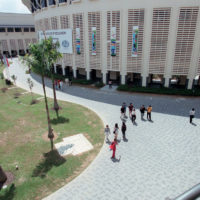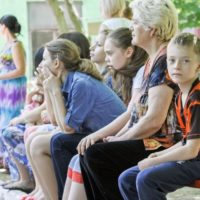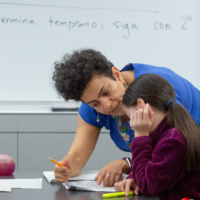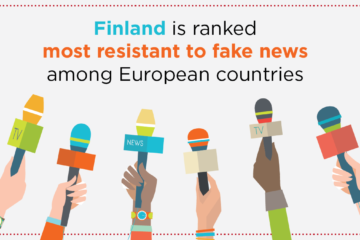Singapore Will Introduce Teachers to Uses of AI in the Classroom
Singapore’s teacher training institute, the National Institute of Education (NIE), plans to train teachers to use artificial intelligence (AI) as part of a new five-year plan called AI@NIE. By 2026, undergraduate and graduate teaching candidates, as well as in-service teachers, will learn how technology can be applied in classrooms to give them better information on student progress and make learning more personalized. The Education Ministry is already using some AI tools in schools and has plans to roll out a new grading system powered by AI in two years. Given these existing investments and the fact that Singapore has a well-developed digital infrastructure, NIE Associate Professor Tan Seng Chee says, “the time is ripe for NIE to capitalise on artificial intelligence.” Read more in The Straits Times.

Estonia Organizes Summer Camps for Ukrainian and Estonian Students

Estonia has added 2.8 million euros (USD $3 million) to its budget for schools and other institutions to organize summer camps for groups of Estonian and Ukrainian children ages 7 to 14. Estonian Minister of Education and Research Liina Kersna said the idea is to provide opportunities for Ukrainian young people to spend “meaningful free time” with Estonian peers, learn the Estonian language, and for all the students to better understand each other’s cultures. She said “Youth camps are definitely a good opportunity to make new friends and practice Estonian language, so that they can continue their studies in Estonian schools in the autumn.” The camps also aim to support the well-being of both Estonian and Ukrainian youth. For more, see The Baltic Times.
England to Provide Free High-Quality Training for All Teachers

England has committed £184 million (US$231 million) to provide free upskilling training — known as National Professional Qualifications (NPQs) — to all teachers through the 2023-24 school year to help ensure that every student is taught by a high-quality teacher. To encourage all teachers to access these resources, additional grants of £200 (US$250) will be available for every teacher from a small or rural school who participates in an NPQ. This announcement follows the introduction of two new NPQs focused on early childhood learning, improvements to the online training platform for early career teachers, and the government’s establishment of the National Institute of Teaching. The Institute will provide initial teacher education, a plan for supporting early career teachers through the early career framework, NPQs, and other leadership development programs in addition to conducting and disseminating research on best practices in teaching. For more, see this press release from the Department of Education.
Japan Establishes Fund to Promote Science and Technology in Universities
As part of an effort to make Japan’s postsecondary institutions internationally competitive, the country has established a ¥10 trillion (US$79 billion) fund to promote science and technology and a robust research environment. National, public, and private universities can apply for funding by presenting plans for institutional reforms and stronger research efforts beginning this year. A survey of 82 national universities revealed that so far only four have decided to apply for this funding. Several universities expressed concern about meeting the eligibility criteria and others worry that the fund will give preferential treatment to top universities at the expense of regional universities. To read more, visit Kyodo News and Science





